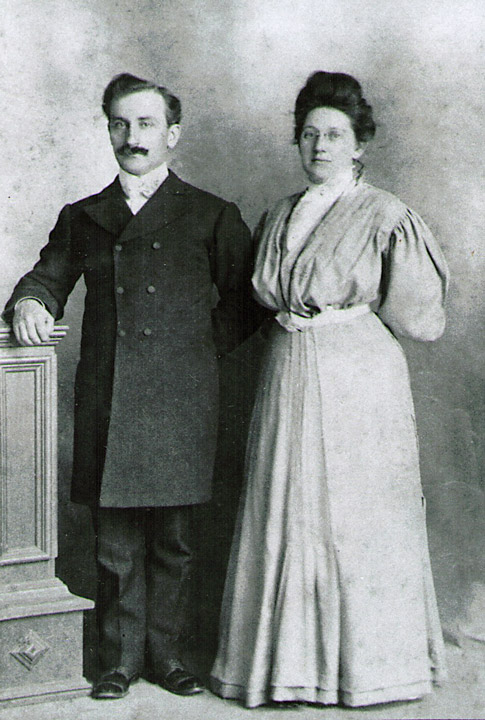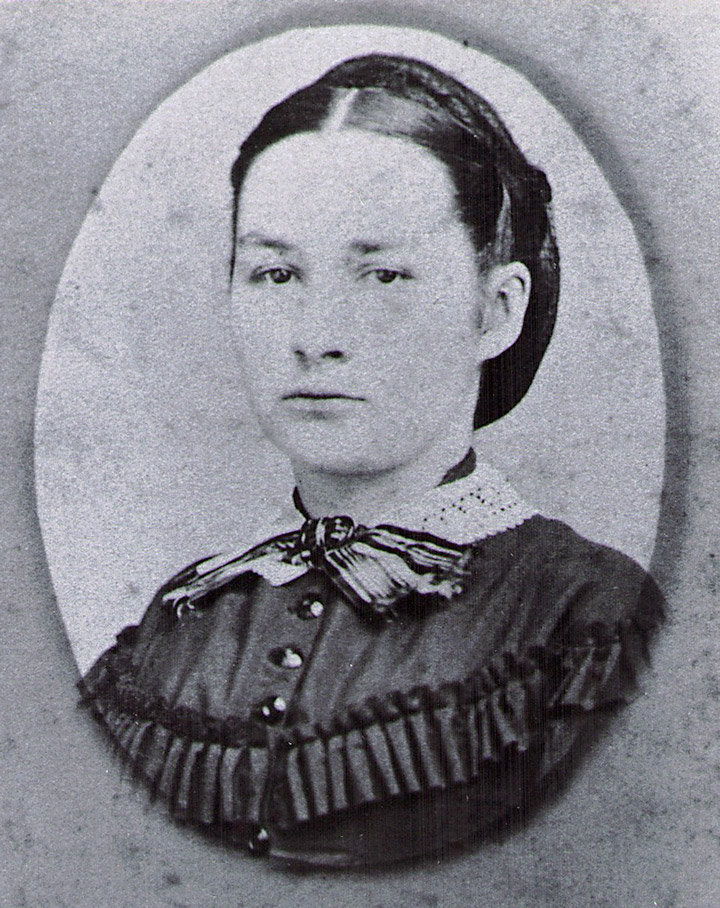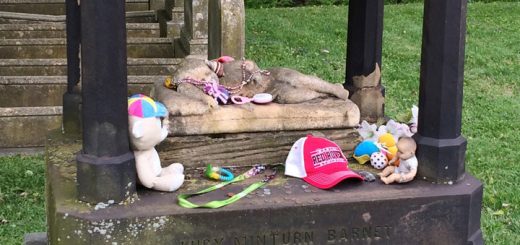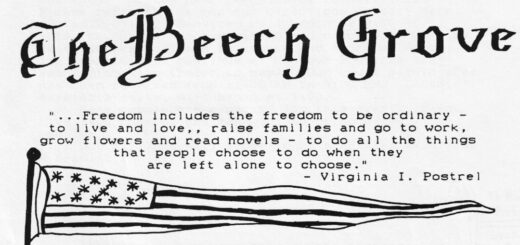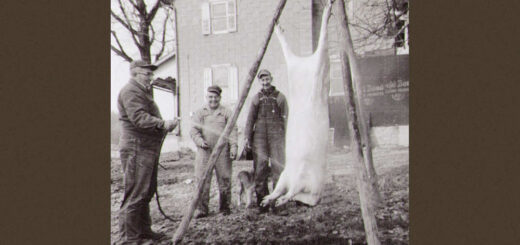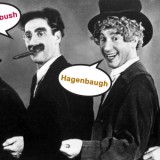One Silver Dollar
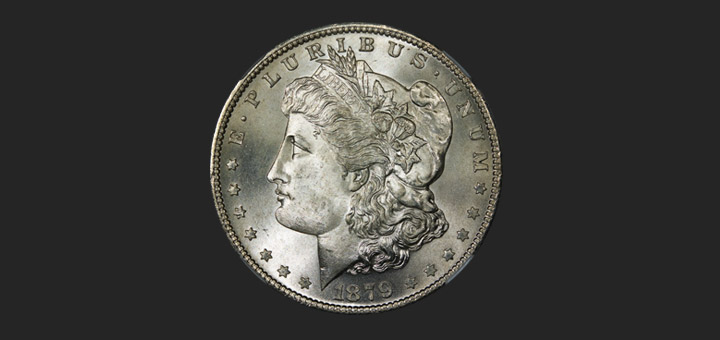
This story was told to Mark Hagenbuch around 1963 by his great Uncle Perce (b. 1880) and corroborated in 1972 by his father’s first cousin, Bruice Hagenbuch (b. 1913).
Francis Eugene Hagenbuch—Uncle Gene—was the third child of Hiram and Mary Ann (Lindner) Hagenbuch—Grandma Hagenbuch. Born on June 24, 1877, he was 22 years old when his father, Hiram, died of typhoid fever after one of the great floods in Milton, Pennsylvania. Eugene seems to have been the “apple of his mother’s eye” because Mary never could get over that he married that girl, Gertrude Robbins, and then went to Kansas to live with her.
No one knows for sure what was wrong with Gertrude, or why Grandma never liked Uncle Gene’s wife. But, Grandma was a strong, opinionated lady and she never made up to Gertrude.
Soon after Uncle Gene and Gertrude married on March 14, 1906, they went west to Kansas. In those days, young folks were always going west to make their fortune. Eugene was probably not a farming type, unlike his younger brothers. All six of them had farms in Montour County, Pennsylvania. (The two eldest sons, Joseph William and Henry Bruce, had died young.)
Eugene seemed to have that wandering spirit—a yearning to do something on his own, away from his family. Maybe Gertrude was influential in that and maybe that’s why Grandma Hagenbuch never liked Gertrude.

Newspaper article about the marriage of Francis Hagenbuch to Gertrude Robbins from The Danville Morning News, March 15, 1906
Once in Kansas, as the family story goes, Eugene and Gertrude ran a general store. However, it didn’t do too well and he wound up selling his store and working for the new owner. Evidence from the above newspaper article states that Eugene first worked for D. C. Ellsworth & Son, managing the undertaking department. D. C. Ellsworth appears to have been a department store that was located in Cherryville, KS. It sold various goods and furnishings and must have provided undertaking services too.
By 1908, a telephone directory for Iola, KS states that Eugene had moved there and ran his own livery stable. That doesn’t seem to have lasted for long, as census records from 1910 show that Eugene and Gertrude had moved to Washington, Oklahoma. Here, Eugene worked as an independent undertaker.
Who knows why Eugene came back to Montour County to visit the family. Maybe he missed his siblings and his mother, or maybe he came back to borrow money; but in 1913 he took the train from Kansas to Danville, PA.
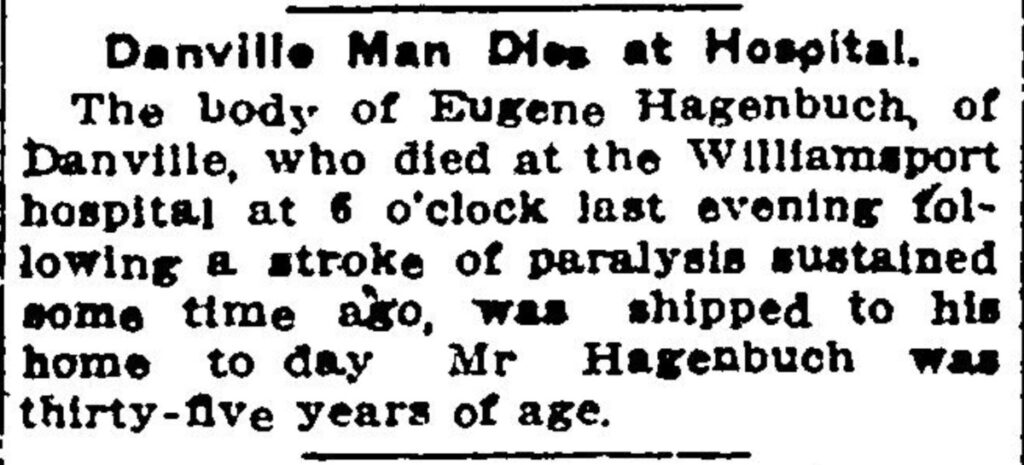
Newspaper article about the death of Francis Eugene Hagenbuch from The Williamsport Sun, April 8th, 1913
From there he traveled the few miles to the family farm, where his brother Israel and his family lived; and where his very strong minded mother Mary—Grandma Hagenbuch—lived also. While he was there, he became sick, was paralyzed, and then, believe it or not, died.
A telegram was sent to his wife Gertrude in Kansas. We can imagine she was heart broken at the news and immediately got on a train for the several day trip back to Pennsylvania. However, in the meantime, Grandma Hagenbuch decided she was not waiting for the mourning widow to arrive—not that woman, the Robbins girl!
Instead, she made plans and had her beloved third son Eugene buried in the family plot at Oak Grove Church. A day late, Gertrude arrives only to find that her loving husband had already been put into the ground. All of this without her being able to pay her respects and mourn him as she should.
We can imagine that there were likely words between daughter-in-law, Gertrude, and mother-in-law, Mary. What they were or the force of that confrontation, we’ll never know. We do know that Gertrude traveled back to Kansas and with that, the story might have ended. For Gertrude is not buried beside Uncle Gene at Oak Grove, which could mean that she stayed in Kansas and remarried.
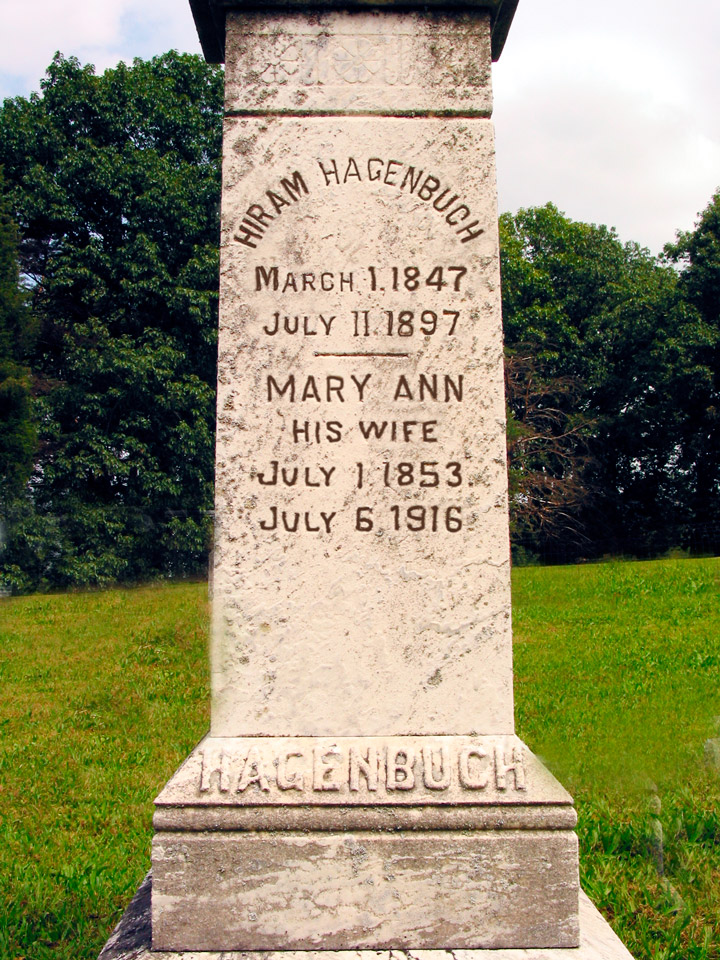
Gravestone of Hiram and Mary Ann (Lindner) Hagenbuch, where Francis Eugene is buried. Text outlined for easier reading. Credit: Findagrave.com/Evan G. Lindner
But, the story does not end. Three years later in 1916 Mary died. She was laid to rest at Oak Grove beside her husband Hiram, who had died 19 years earlier. The story goes that her last will and testament was viewed by the lawyer and in it Gertrude (Robbins) Hagenbuch, widow of Francis Eugene, was named along with Mary and Hiram’s eight living children: Kathryn Roat, Percy, Israel, Julia, Harry, Clarence, Franklin, and Luther.
Gertrude received a telegram from the lawyer stating that she had been left money in her deceased mother-in-law’s will and that she must come east for the reading of the will in order to collect the money. Thinking that Mary must have provided for the son that was the “apple of her eye” and that she, Gertrude, would be inheriting that cash, Gertrude purchased a train ticket and traveled to Danville, PA just as her deceased husband had back in 1913.
No one knows the type of reception she received. Were the others kind to her or did they snub her? Regardless, as the eight children and one widow stood in the lawyer’s office; as the will of Mary “Lindner” Hagenbuch was read; and as the estate was divided among those present; the last sentence was read: “And to my dearly departed son Francis Eugene’s widow, I leave… ONE… SILVER… DOLLAR!”
One can only imagine Gertrude’s anger and the looks from her deceased husband’s siblings. One can also only imagine the time and money she spent to travel back to Montour County, PA from somewhere in Kansas only to receive that one dollar.
In the end, that strongly opinionated lady, the one many of us call our great grandmother, had the last word even as she lay dead and silent in her grave.
This article was updated in 2025 to include new research into Francis Eugene Hagenbuch’s career, as well as several newspaper articles to support the story.

